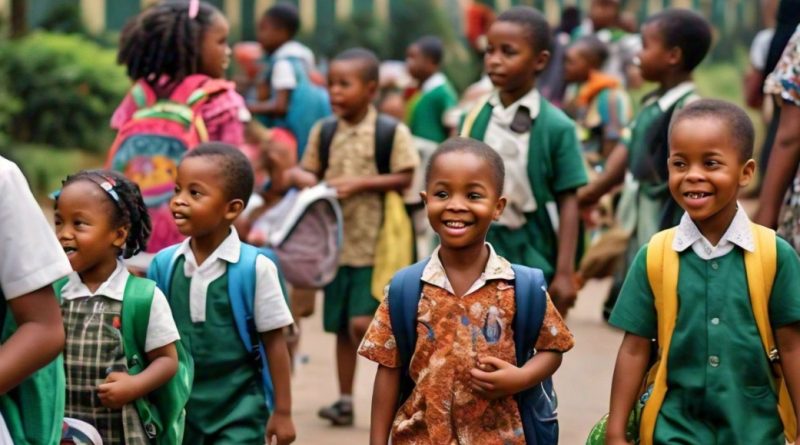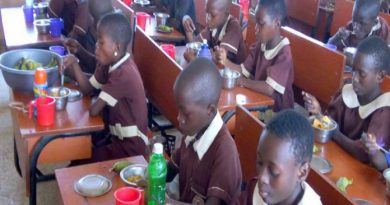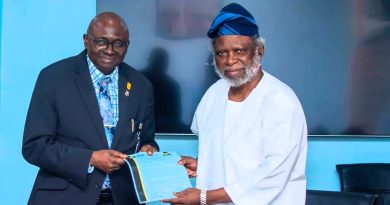Out-of-School Children Crisis: Nigerians Urge Govt’s Urgent Action
… say Nigeria’s future is bleak
Oru Leonard
Federal and state governments have been tasked to urgently address Nigeria’s worrisome spike in out-of-school children crises to save the country’s future.
Experts and citizens made the call during an anti-corruption radio program, PUBLIC CONSCIENCE, produced by the Progressive Impact Organization for Community Development, PRIMORG, on Wednesday in Abuja.
This is coming on the heels of two recent investigative reports published by Premium Times exposing how poverty, shambolic education system, dilapidated infrastructure, tortuous teaching, and learning environment continue to worsen the out-of-school children scourge in Niger and Nasarawa states.
Nigeria currently has the highest number of out-of-school children in the world, with only 63% of primary school children regularly attending schools, according to the United Nations Children’s Fund (UNICEF).
Speaking during the radio programme, Chief Executive Officer of Gender Consult Joyce Ahmadu called on President Bola Tinubu and the 36 state governors to take prompt steps in tackling the rising numbers of out-of-school children, admonishing that high priority must be placed on improving basic education.
Ahmadu warned that Nigeria’s future will be bleak if leaders fail to nip the out-of-school children problem in the bud without delay, as primary and secondary school education is the bedrock of every nation’s development”.
She knocked on state governments that have failed to provide matching grants for implementing Universal Basic Education, UBE in their states. Adding that the action ensures the future of the Nigerian child remains in jeopardy, with girls mainly affected.
“The buck lies on the government’s desk in budgeting and collaborating with key stakeholders to ensure that the education sector provides an enabling environment for children to learn. The role of government cannot be over-emphasized.
“We (Nigeria) will not be where we are today if the governors prioritize education. The children just come to school and possibly don’t even learn anything, just to fulfill all righteousness. And we know that the primary and secondary schools are the bedrock, so If they don’t get it right at these levels, we are doomed.
“The governors have a huge role in ensuring that even parents prioritize the education of their wards, but of course, they cannot hold parents accountable because they have not even provided the right infrastructure for children to come and learn.
“The government needs to take the lead with regards to education and everybody will follow suit. Obviously, they’ve not prioritized education,” Ahmadu lamented.
She noted that corruption is a major issue that must be dealt with if education budgetary allocations at federal and state levels are to be properly put to good use.
Similarly, a board member of the Civil Society Action Coalition On Education For All (CSACEFA), Abdullahi Sale, called out state governments for their inability to prioritize the education of citizens as insecurity, infrastructure, and teachers’ remuneration are still not on the front burner.
Sale, while stressing that Nigeria needs humongous investment in education to catch up with the rest of the world, also lamented the failure of some state governments to access UBE funds as of July 2024. He
however, raised fear that more states will not access the education funds after the federal government increased the matching grant to N3.5 billion.
“Government just have to prioritize education. We need to understand that the issues in the country today are not unconnected to the lack of education of our young people. Twenty years back, there was a study that these (out-of-school crisis) happenings that we see in the North would happen because education had been neglected. If the government had acted just the way former President Goodluck Jonathan started with the Almajiri schools and other initiatives, then we would have nipped it in the bud.
“The government should realize that the issues we are facing in the country today are connected to lack of education, and so they should do the needful.
“Many governors don’t see education as something they should invest in. For the 3.5bn, I’m afraid as to how many states will be able to match that 3.5bn. We (civil society groups) have monitored education infrastructure across the country, and what we saw on the ground is worrisome.
“We need a humongous amount and political will to work on infrastructure in the country. So, the UBE fund is a far cry, but it’s better than nothing. I hope the governors will prioritize matching those funds,” Sale stated.
On her part, data journalist and researcher Kafilat Taiwo urged federal and state governments to collaborate with Non-Governmental Organisations (NGOs) in addressing the myriad of problems bedevilling primary and secondary education, especially in rural areas.
Taiwo, buttressing the findings of the investigation, stated that “poverty, insecurity, dilapidated infrastructure, poor welfare and others are some of the issues booming the rate of out-of-school children in Niger state and added that the federal government’s discontinuation of the school feeding programme has also caused a sharp drop in the number of children that attend school in rural communities.
“The government needs to address issues affecting primary and secondary schools in the state. The teachers are just trying; they are being owed salaries, and they are deprived of upgrades and promotions. They need to be motivated to do more
“The growing number of out-of-school children in the state is alarming. I got to know that more female children are out of school compared to their male counterparts. I got to know that the education sector in the state is facing a lot of challenges,” Taiwo averred.
Public Conscience is a syndicated weekly anti-corruption radio program PRIMORG uses to draw government and citizens’ attention to corruption and integrity issues in Nigeria.
The program has the support of the MacArthur Foundation.
(PRIMORG Media)




